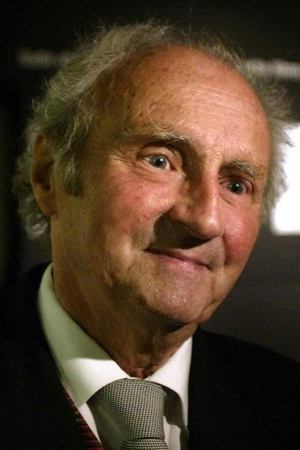André Delvaux (1926-2002)
Birthplace:
Heverlee, Brabant, Belgium
Born:
March 21, 1926
Died:
October 4, 2002
André Albert Auguste Delvaux (21 March 1926 – 4 October 2002) was a Belgian film director. He co-founded the film school INSAS in 1962 and is regarded as the founder of the Belgian national cinema. Adapting works by writers such as Johan Daisne, Julien Gracq and Marguerite Yourcenar, he received international attention for directing magic realist films. Delvaux received the Louis Delluc Prize for Rendezvous at Bray (1971) and the André Cavens Award for Woman Between Wolf and Dog (1979) and The Abyss (1988). The king of Belgium made him a baron in 1996. The Académie André Delvaux is named after him and he posthumously received the first Honorary Magritte Award in 2011. André Albert Auguste Delvaux was born in Heverlee, Belgium, on 21 March 1926. He studied piano at the Royal Conservatory of Brussels and worked as a silent film pianist at the Belgian cinématheque in his early 20s. He studied law and took a degree in German philology at the Free University of Brussels, after which he worked as a teacher. Delvaux's filmmaking career started in 1954 when he began to make television documentaries about film directors for the broadcaster RTB. Notably, he made a four-part series about Federico Fellini in 1960. In 1959 he co-directed a short fiction film with Jean Brismée, La Planète fauve. In 1962 he co-founded the film school INSAS in Brussels and became the director of its directing department. From that point cinema was his primary occupation. Delvaux's first two feature films were based on books by Johan Daisne. Delvaux received international attention for his first feature film, The Man Who Had His Hair Cut Short (1965), which is based on Johan Daisne's novel with the same title. It was followed by another Daisne adaptation, One Night... A Train, in 1968. His first colour film, it shares several elements with the previous film: an uncomfortable teacher, a tragic ending and a confrontation between love and death. Rendezvous at Bray (1971), loosely based Julien Gracq's novella King Cophetua, is set during World War I and places great emphasis on atmosphere. The film stars Mathieu Carrière, Roger Van Hool, Bulle Ogier and Anna Karina, and became a turning point in Delvaux's career, because its critical success allowed him to choose his subjects more freely. Belle (1973) is about an affair with a mistress who may or may not be imaginary. Woman Between Wolf and Dog (1979), set in German-occupied Flanders during World War II, is among Delvaux's more realist films. It is about a woman who is torn between the Belgian Resistance and her collaborationist husband. The painterly Benvenuta (1983), based on Suzanne Lilar's book La Confession anonyme, plays with reality and imagination through a story about a screenwriter who adapts a novel for film. Delvaux's last feature film was his largest project, The Abyss (1988). The film is an episodic drama set in 16th-century Europe and based on a book by Marguerite Yourcenar. Like Belle and Woman Between Wolf and Dog before it, The Abyss played in the main competition of the Cannes Film Festival. Delvaux's final short film, 1001 films, was shown as a special screening at the 1989 Cannes Film Festival. ... Source: Article "André Delvaux" from Wikipedia in English, licensed under CC-BY-SA 3.0.





